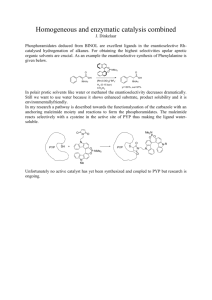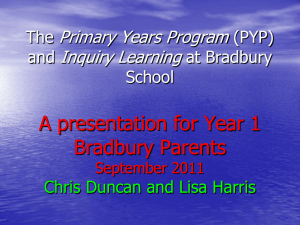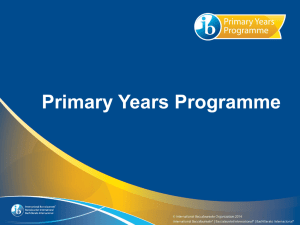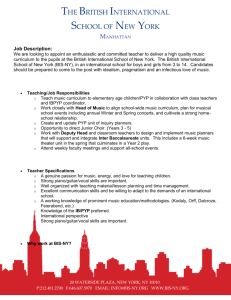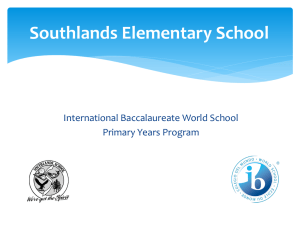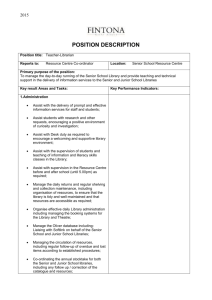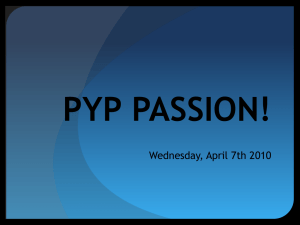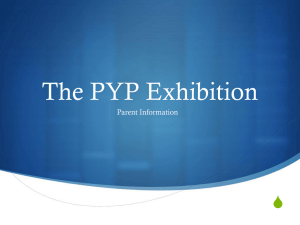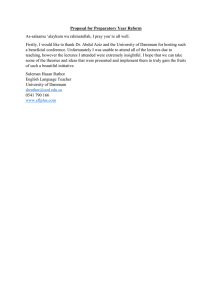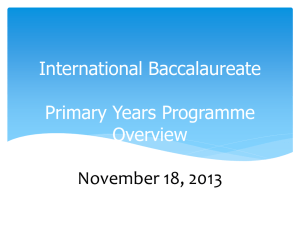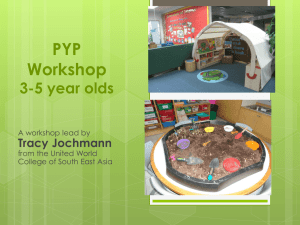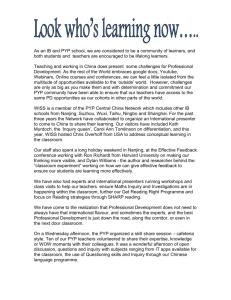Action as defined by MTPYPH
advertisement
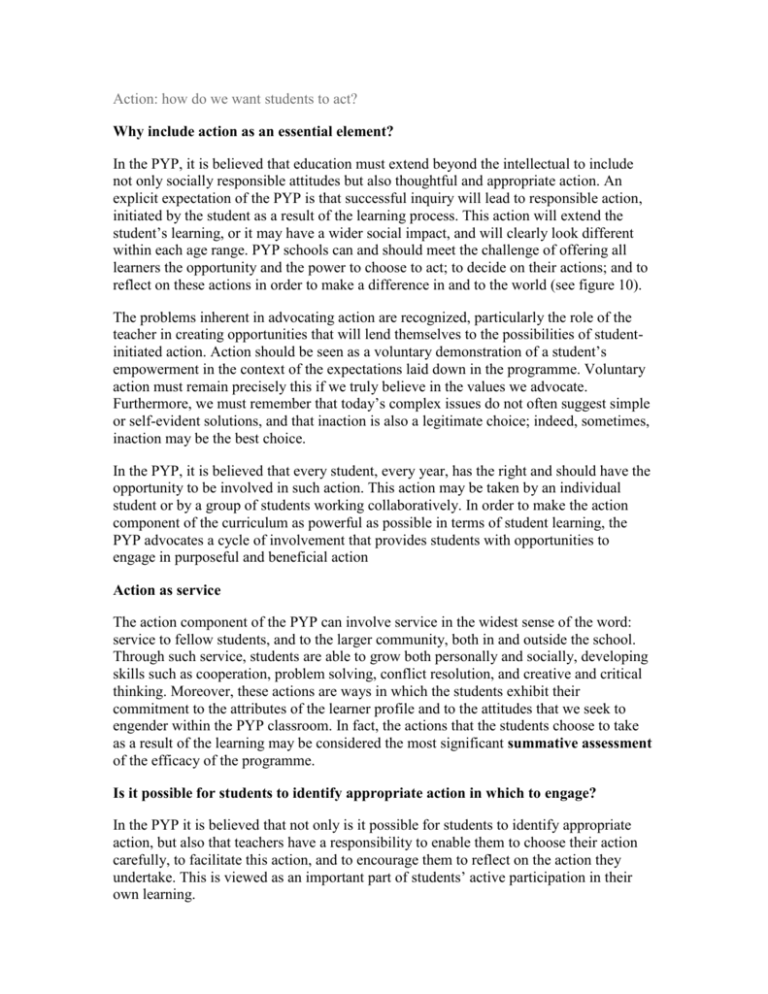
Action: how do we want students to act? Why include action as an essential element? In the PYP, it is believed that education must extend beyond the intellectual to include not only socially responsible attitudes but also thoughtful and appropriate action. An explicit expectation of the PYP is that successful inquiry will lead to responsible action, initiated by the student as a result of the learning process. This action will extend the student’s learning, or it may have a wider social impact, and will clearly look different within each age range. PYP schools can and should meet the challenge of offering all learners the opportunity and the power to choose to act; to decide on their actions; and to reflect on these actions in order to make a difference in and to the world (see figure 10). The problems inherent in advocating action are recognized, particularly the role of the teacher in creating opportunities that will lend themselves to the possibilities of studentinitiated action. Action should be seen as a voluntary demonstration of a student’s empowerment in the context of the expectations laid down in the programme. Voluntary action must remain precisely this if we truly believe in the values we advocate. Furthermore, we must remember that today’s complex issues do not often suggest simple or self-evident solutions, and that inaction is also a legitimate choice; indeed, sometimes, inaction may be the best choice. In the PYP, it is believed that every student, every year, has the right and should have the opportunity to be involved in such action. This action may be taken by an individual student or by a group of students working collaboratively. In order to make the action component of the curriculum as powerful as possible in terms of student learning, the PYP advocates a cycle of involvement that provides students with opportunities to engage in purposeful and beneficial action Action as service The action component of the PYP can involve service in the widest sense of the word: service to fellow students, and to the larger community, both in and outside the school. Through such service, students are able to grow both personally and socially, developing skills such as cooperation, problem solving, conflict resolution, and creative and critical thinking. Moreover, these actions are ways in which the students exhibit their commitment to the attributes of the learner profile and to the attitudes that we seek to engender within the PYP classroom. In fact, the actions that the students choose to take as a result of the learning may be considered the most significant summative assessment of the efficacy of the programme. Is it possible for students to identify appropriate action in which to engage? In the PYP it is believed that not only is it possible for students to identify appropriate action, but also that teachers have a responsibility to enable them to choose their action carefully, to facilitate this action, and to encourage them to reflect on the action they undertake. This is viewed as an important part of students’ active participation in their own learning. Effective action does not need to be grandiose. On the contrary, it begins at the most immediate and basic level: with the self; within the family; within the classroom, the hallways and the playground. Even very young children can have strong feelings about fairness and justice, and teachers can facilitate positive expressions of these opinions. Effective action can be a demonstration of a sense of responsibility and respect for self, others and the environment. Guidelines for implementation Effective action: -should be modelled by the adults in the school community—the action in which schools may engage will be based on the needs of the school community and the local community -should be voluntary and involve students in exercising their own initiative - is best grounded in the students’ concrete experiences -is most beneficial to the students when they are able to witness the outcomes -usually begins in a small way and arises from genuine concern and commitment -should include anticipation of consequences, and accepting of responsibility -may require appropriate adult support in order to facilitate students’ efforts and to provide them with alternatives and choices. The action of fund-raising, either modeled by adults or initiated by students, is common in schools. Although the outcome of the fund-raising is worthy, for students whose participation is limited to the giving of money, it may not require much in the way of personal commitment or reflection. It is intended that the person taking the action will grow from the experience, and that the process of taking action or not will contribute to each student establishing a personal set of values. Action as a result of the learning may not be witnessed by the teacher and often happens beyond the classroom (see figure 11). Making the PYP happen: A curriculum framework for international primary education (pg.25-27)
